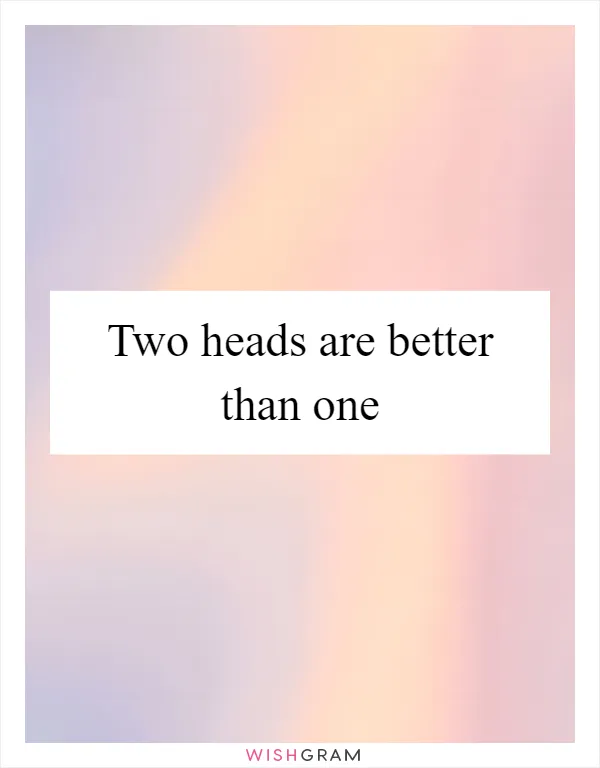Two heads are better than one
Collaboration and teamwork are essential in achieving success. The saying "two heads are better than one" emphasizes the power of working together and combining different perspectives to find the best solutions. When two individuals come together, they bring their unique skills, knowledge, and experiences, which can lead to more innovative and effective outcomes.
In any situation, having multiple viewpoints can help in making well-informed decisions. Each person may have their own strengths and weaknesses, but by joining forces, they can complement each other and fill in the gaps. This diversity of ideas and expertise can lead to a more comprehensive understanding of the problem at hand and open up new possibilities for finding solutions.
When two heads collaborate, they can brainstorm ideas, challenge each other's assumptions, and provide constructive feedback. This collaborative process encourages creativity and critical thinking, as different perspectives can shed light on aspects that may have been overlooked by an individual working alone. By bouncing ideas off each other, they can refine and improve their initial thoughts, leading to more robust and well-rounded solutions.
Moreover, working together can also help in overcoming obstacles and tackling complex tasks. When faced with a challenging problem, it can be overwhelming for a single person to find the best way forward. However, when two heads come together, they can share the workload, divide responsibilities, and support each other throughout the process. This not only lightens the burden but also increases the chances of success by leveraging the strengths of both individuals.
Collaboration is not limited to just two people; it can extend to larger teams as well. In a team setting, the saying "two heads are better than one" becomes even more relevant. With more individuals involved, there is a greater pool of knowledge and expertise to draw from. This diversity can lead to more comprehensive discussions, richer ideas, and ultimately, better outcomes.
However, effective collaboration requires open communication, respect for each other's opinions, and a willingness to compromise. It is important to create an environment where everyone feels comfortable sharing their thoughts and ideas without fear of judgment. By fostering a culture of collaboration, teams can harness the power of multiple perspectives and work towards achieving their goals more efficiently.
